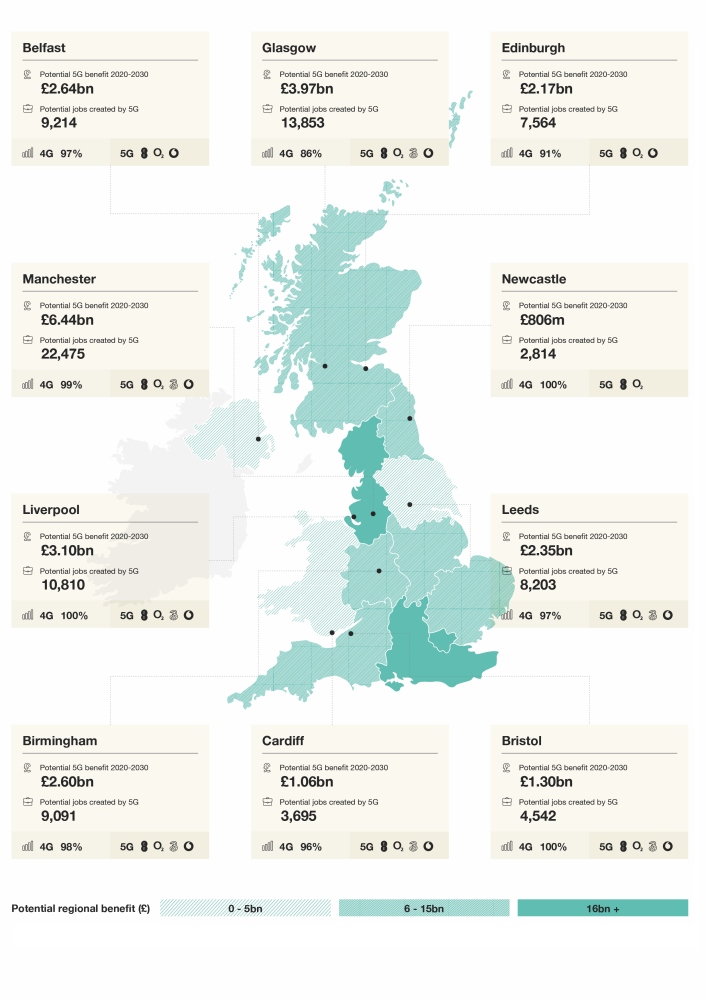The report, by research company Assembly, estimates that as many as 350,000 new job opportunities may be lost outside the bubble. London itself could miss out on as many as 139,000 potential jobs, it's claimed.
The UK government has decreed that the UK must not use Huawei 5G equipment, echoing unspecified claims by the USA administration that its kit compromises security. Some have suggested that the exclusion of 5G kit in the USA is part of the trade wars initiated by President Donald Trump.
Victor Zhang, Vice President of Huawei, claimed: “UK government has set ambitious targets for improved connectivity by 2025. This research reveals how a 3-year delay in 5G roll-out will have a significant economic impact on every part of the UK, and highlights the consequences of failing to realise Britain’s full potential. Without global 5G leadership, Britain faces relegation to the digital slow lane, a job creation black hole and a wider digital divide.”
Assembly has broken down the potential damage to different regions of the UK, in the graphic below. The market research company also believes that a delay in the roll out of 5G will affect sectors from remote healthcare, robotics, education, “smart manufacturing” and robotics.
Matthew Howett, Principal Analyst and Founder of Assembly, said: “The Government’s own expectation of its restrictions on Huawei is for up to a 3 year delay in 5G roll-out. The risk of course is that this will be felt by operator’s being forced to focus their deployments in more profitable urban centres and that would inevitably mean it takes longer to reach, and fully cover, more rural and remote parts of Britain with 5G. If this plays out there is a risk of a widened digital divide.”





